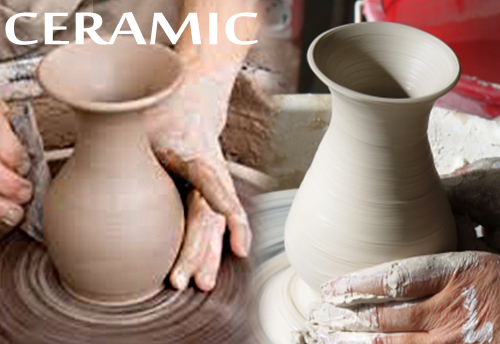Ceramic industry full of varied location-based shortcomings
Updated: Feb 15, 2016 05:36:49am

New Delhi Feb 13 (KNN) Comprising of 5.6 per cent share in the international market, Indian ceramic industry has been one of the crucial segments of the economy since several decades. The industry, however has been encountering several challenges, which are particularly prominent in the small and medium scale manufacturing units.
In conversation with ceramic based SMEs, KNN grasped the foremost issues that remain unresolved in the ceramic industry. The problems, however, varied based on the location of the industries as well as their size.
In a noticeable city like Mumbai, infrastructure is no issue. For ceramic units based in such cities, expensive labour and delayed payment schedules pose massive problems for the manufacturers. Tanveer Panchal, Manager, Stun engineers, a ceramic manufacturing unit located in Thane shared similar concerns. “The payment schedule is hampering the industry. Companies come up for 30 days credit but they don’t stick to that,” said Panchal.
Though the sales have been favourable for the manufacturers, labour has been costing them a great deal. “The sales have been at a normal pace for our company compared to previous years. However, the labour cost is very high,” he lamented.
The manager thinks highly of the government policies. Expressing a positive outlook for the government initiatives, Panchal said, “We are quite contended with the government’s policies regarding taxes- the upcoming GST bill is going to be a huge relief for the industry. The centralisation of the taxes would make it convenient for us to operate”.
On one end, manufacturing industries based in prominent metro cities are quite content with the government’s support, while at the other end, units based in small cities have a different viewpoint for the government’s effort.
KNN got in touch with a small scale ceramic manufacturing unit based in Bulandsheher , UP.
Mohammad Abrar of Rimper Ceramics is of the belief that the government is not highly concerned for the development of ceramic based SMEs in small cities. “We have been facing a lack of information from the government’s end. The industries haven’t been receiving proper facilities from the government,” Abrar told us, referring to the infrastructure.
The infrastructure in these cities cannot be compared to that provided in metro cities.
“Though the infrastructure is good, we have been suffering tremendously when it comes to the provision of electricity. The problem is mainly prevalent in small industrial cities like ours,” Abrar said.
Further focusing on the dearth of assistance from CGRI, Abrar said, “There is inefficiency in provision of information from CGCRI. I approached the Institute to derive some information on Steatite, which is an important component of ceramic products but I couldn’t get a proper draft on what I required. They are reluctant to provide the information about the ongoing research in Ceramics as well as the information about the global market to small industries”
CGCRI (Central Glass and Ceramic Research Institute) is a research and development institute established by the central government for the ceramic industry.
Unlike other industries, raw materials are not a problem for ceramic industries. It was deduced from the conversation that transportation of the manufactured products as well as the raw materials has been burning holes in the pockets of manufacturers. High VAT on ceramic products is another headache for the manufacturers.
Elaborating on the context, Abrar said, “There is no problem in acquiring raw material. But the transportation cost troubles us. Also, we are upset with the high taxes on ceramic products. The glass industries in Firozabad have a relatively lower tax. On the other hand, we have a VAT of 14.5 per cent which is tremendously high when compared to the industries in other sectors. This is costing us to a great extent.”
What adds to the problem is the reluctance of Delhi based retailers to purchase ceramic products from manufacturers with receipts. Their reluctance to make the purchase as well as avoid the taxes has been costing manufacturers their profits.
“Also, the retailers in Delhi, in order to avoid paying the taxes, ask us, not to trade with receipts and bills, making it further more difficult for us as the government has made it mandatory to issue bills. The ceramic products that have low margins are unable to combat the high costs which reduces profit margin,” Abrar explained.
The small scale ceramic based industries want the government to reduce the taxes on manufacturing ceramic products. “It should provide subsidy to the small scale manufacturers in order to make it competitive,” as per the views of small scale manufacturers.
It was witnessed that the problems differ as per the size of the industries as well the location of the manufacturing units. Though the industry has been experiencing a gradual upliftment in profits since last 25 years, the problems are being way too prevalent and overlooked. (KNN Bureau)












